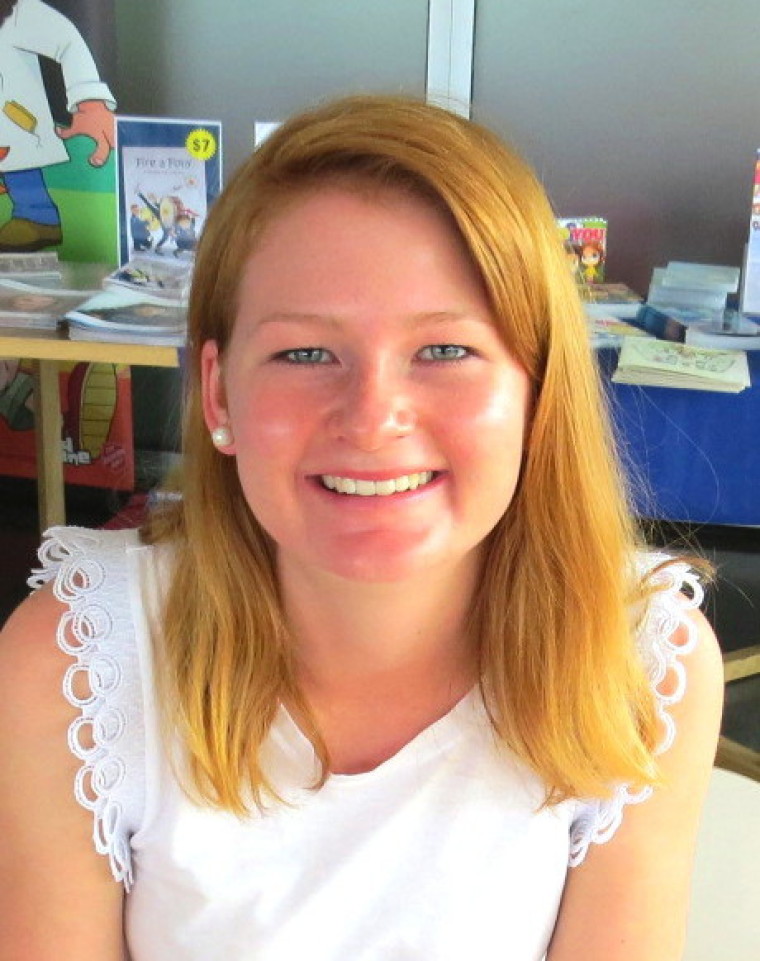

"I'll shoot them!" she confidently exclaims, her eyes lost in the moment. "Yes I will. I'll walk right in there and aim that gun." As she says this, her hands are frenzied, her eyebrows (which are drawn on) are more obvious than ever, and her legs, well they just swing back and forth.
The tram abruptly halts and my body is swung out of my seat. I am very close to marking my presence on the lap of an older lady sitting opposite me. It is only the harsh grab of Vera's left hand on my arm that propels me back into my seat. After a moment of collecting myself and observing her, I offer my thanks. But it doesn't stop there. My curious mind is in its element. I know exactly what I am to do. I begin to ask her questions.
Vera
Vera, a 60-year-old migrant from the Netherlands, is what our government technically calls 'unemployed'. Her life is a metaphorical child of her exclamation.
She is a scholar, has completed a Master in Art History, is an accomplished artist and most recently wants to study Social Theory at Monash University. Her credentials are overwhelming in number, but—like many of our older generation seeking employment—finding a job is a difficult task.
Vera understands why finding a job is especially challenging for her; one hand is crippled and in the other a walking stick helps guide her steps. In addition, her current weekly budget doesn't allow for much extravagance. Socks and sandals are what keep her feet warm when it's cold outside.
Her legs are still nonchalantly swinging. Her socks and sandals combination are on display and they keep swinging even when I ask her whom she would shoot. There is no hesitation as she replies, "Those who look at my application and only see a 60-year-old woman."
She is lost in thought as she questions why her contribution to society isn't valued. After her evaluation of self, I assume she would have been deterred. But she continues, "On second thought, my shot may be lazy, drawing has given me carpal tunnel," she says, while pointing to her right hand.
"I may have to use my left hand."
As she speaks, each syllable is tinged with this eventual knowledge: that the chances of her studying Social Theory are unlikely, and the proposition of a job even more doubtful. "I may just have to become a lecturer instead, at least I'll get paid," she mutters. After a slight pause, a quiet moment of consideration, her resounding laughter is infectious.
A reflection
And it is a laughter that makes me laugh. It is full and honest. It is tender and raw. It is a cry of decades lived. And it is this laugh that leaves me fully captivated.
As I begin to depart the tram I hear her call out my name.
"Emily!"
I turn to look at her. "Don't forget to wear tights under your jeans," she says.
"It will keep the cold out, I promise!"
She is squirming with delight and so full of truth she leaves me laughing her laugh all the way home.
And in that moment I know exactly why she captivated me.
She told me her story with gritty honesty. Every part of her being oozed with truth. Her socks, her swinging legs, her eyebrows. She was so real and present. She was truthful.
Being present
After thinking on this conversation, I see God in it in every way. He reminded me of the absolute importance of being present. Of not missing moments of greatness. Of truth. It was then that I decided that I don't want to miss another moment. I don't want to miss a chance to hear someone's story. Someone's truth.
With my own swinging legs, I thank Vera for her truth and allowing me to listen to her story. I think I'm ready to look at the debris, delve into the incomplete stories, and hear the echo of people's days.
Are you?
Emily Black is passionate about writing and seeks to write raw, authentic and timely pieces that disturb and comfort, engage justice and fundamentally empower. She is currently studying a Bachelor of Arts at The University of Melbourne and actively desires to pursue a life of untainted freedom through Jesus Christ.
Emily Black'sprevious articles may be viewed at http://www.pressserviceinternational.org/emily-black.html